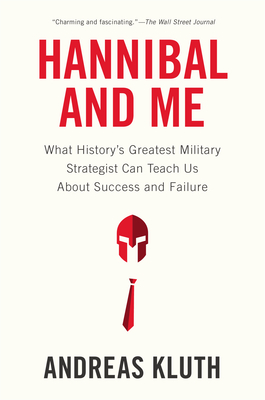Archives de catégorie : General
Banned banner (aka ban as banners ban)
Cronut
The recipe for the cronut explained by Jason Kottke
chi ku
Karen X. Cheng: Why I quit Microsoft (see also It’s scary to change careers)
Hannibal

While US West Coast correspondent for The Economist, Andreas Kluth wrote Hannibal and Me: What History’s Greatest Military Strategist Can Teach Us About Success and Failure (Magnet URI). Great dissertation on how to stay focus and achieve, with Hannibal’s life sewn in (with Ariadne’s thread?). Filled with summary’s of ‘great’ peoples’ lifes, in clear prose (so clear the same quote is repeated twice within a few pages… where are the legendary Economist proof-readers?). The plot is classic. Take life of great peoples (define: people) and highligts some key events, as they are related by biographers. Insert some personal souvenirs ans some family history (uncle Lulu!) and draw som conclusions on how to manage your own life. In the last chapter, introduce Abraham Maslow‘s qualities of self-actualizing people. And forget to talk about god. Yes, not a single word, except to describe young Hannibal conducting a (maybe human) sacrifice with his father, or qualify Albert Scheweitzer as ‘theoligian’.
I still fail to understand why Lance Armstrong, Tiger Woods or Eleanor Roosevelt (« Great minds discuss ideas. Average minds discuss events. Small minds discuss people ») found their way in that book. However, is reads well, with the classical no-unnecessary-word style of The Economist.
Galapagos
Mr Jalopy

Buy a bicycle that you have a soft spot for. If it doesn’t make you smile, it is the wrong bike [x]
aka – Stealth Bomber – a pair of Turkish tiles from 1550 on Google Art Project – Trim your zipties – started with used tools, error – the 8 levels of restoration – Sheer Terror at the AC Outlet – Maker’s Bill of Rights

Open source intelligence and development
[Before shredding] Freeing knowledge, telling secrets: Open source intelligence and development (pdf) by Cody Burke. A classic example of a non-intel specialist who sees bright future in open source, collaboratioive tools and contests the existence of the (US model of a) Intel community. Intensively quotes from John Perry Barlow‘s Why Spy? (including the famous « intelligence defines reality for those whose actions could alter it »), Robert David Steele, ex-WIRED Thomas Goetz and NATO OSINT Handbook (pdf), with the faith of a Linux evangelist (to include quoting from The Cathedral and the Bazaar (pdf – see Wikipedia for details).
Mark Twain
« Truth is stranger than fiction, but it is because Fiction is obliged to stick to possibilities. Truth isn’t. »
How London cops use social media to spy on protest movements
Umut Ertogral, who runs the Opensource Intelligence Unit for London’s Metropolitan Police Service, today told the AusCERT information security conference a team of 17 staff were working seven days a week to track social media feedback and monitor community tension. “There’s a lot of work we’re doing to analyse the language and how people are talking on Twitter,” Ertogral said. The department, which has been mobilised around other major events such as the G20 conference, London student riots and London Olympics, is using Radian 6 and RepKnight software to explore trends, sentiment and association of social media users. Ertogral said the unit was using Radian 6 as a listening tool, for trend analysis and to gauge public mood, and RepKnight to identify geolocation hotspots where activity is taking place based on keywords. The unit is also conducting what Ertogral called “strategic horizon scanning”. “For the Olympics we looked at events five days in advance so we could make a prediction to say what was going to happen.” The unit monitored some 32 million social media articles during the Olympics, with 10,300 tweets being posted every second during the opening ceremony. “Companies will tell your that sentiment analysis from a piece of software is about 56 percent accurate … we would say it’s lower, because it doesn’t pick up humour or slang,” Ertogral said. In addition to looking at trends, he said the unit was also exploring association to establish influencers, particularly for protest movements. “So we’re trying to build friend lists on Facebook, who’s connected to who, who are the influencers out there etc.” He added that in the future it was likely the task would get more difficult as more social media “noise” emerged. “What is actually junk or what is not is going to be very difficult for us to distinguish, so we’re looking at user specific targeting. “We’re looking at tribes as well people surrounding themselves with likeminded people so we’ll see a lot more clusters within the social media world. » Ertogral said the advent of 4G would be a challenge for law enforcement, and “fantastic” for protestors because it would allow them to stream more pictures and video in real time. “4G’s going to be drawing in a lot more data and a lot more information for us to go through.” Ertogral also expects geo-tagging to become more prevalent, and said at the moment only about 1.6 percent of people had geo-location services switched on on their phone at any one time. “That can go up to around 13 percent in a protest environment.”
How London cops use social media to spy on protest movements, via boingboing


